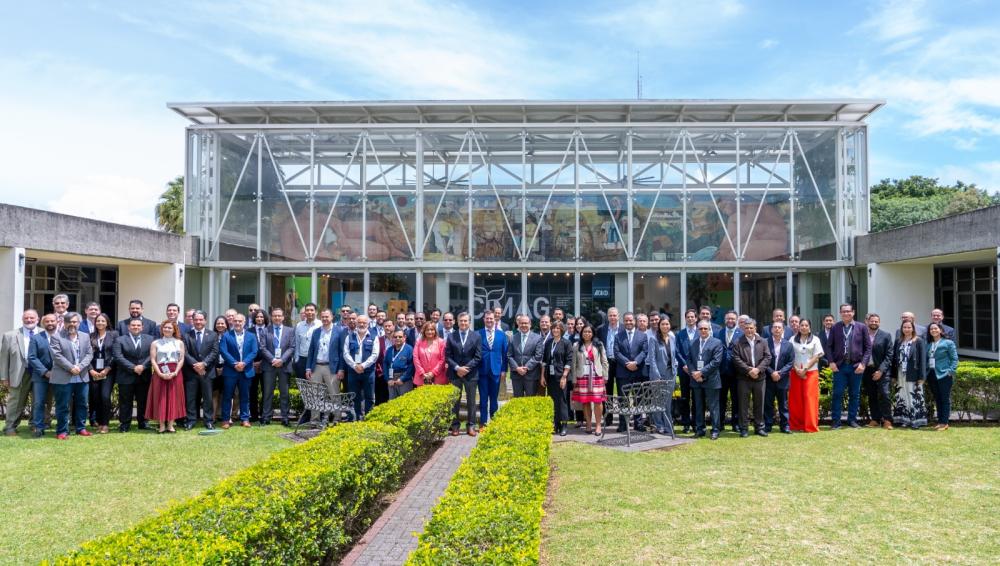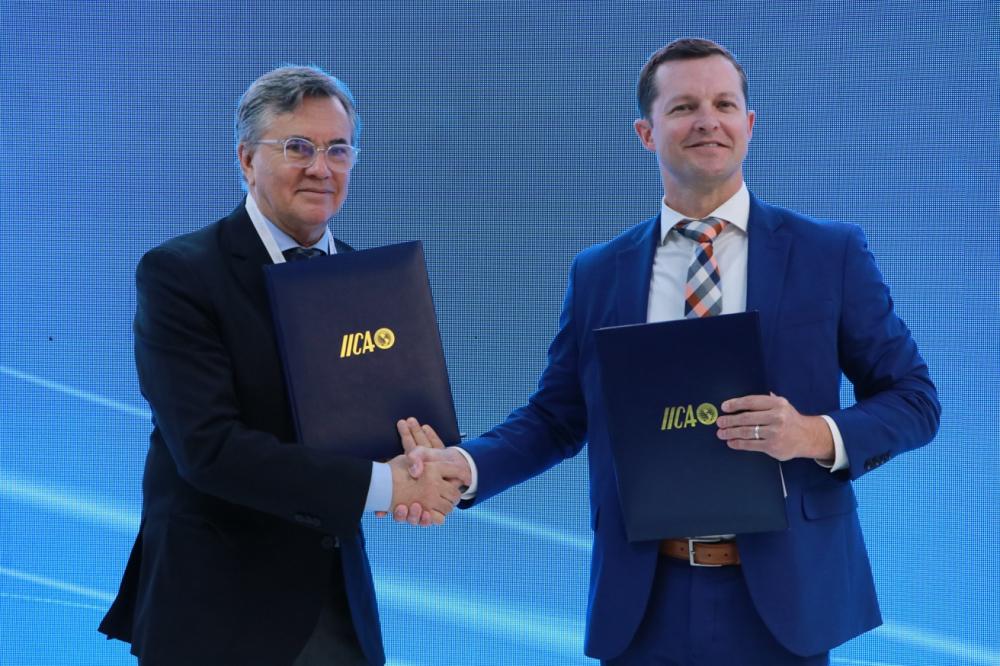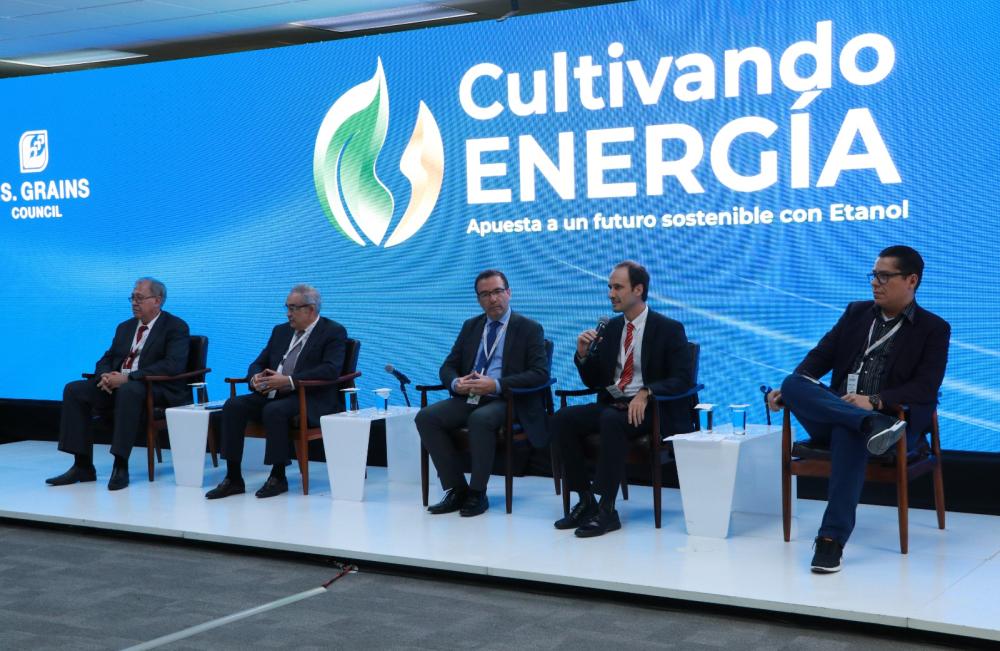At IICA, authorities and energy sector experts from Central America, convened by the U.S. Grains Council (USGC), analyzed the future of biofuels and their role in the decarbonization of transportation

San José, 30 August 2024 (IICA) – More than 70 biofuel specialists and public and private sector authorities from Central America related to the energy sector gathered at the headquarters of the Inter-American Institute for Cooperation on Agriculture (IICA) in Costa Rica to discuss the challenges and opportunities offered by biofuels for agroindustry and their role in contributing to the decarbonization of transportation.
At this third regional seminar, entitled "Cultivando Energía" (Cultivating Energy) and organized annually by the U.S. Grains Council (USGC), participants discussed the prospects of biofuel and ethanol markets, as well as successful international experiences from countries like India and the Philippines.
Costa Rica's Vice Minister of Environment and Energy, Ronny Rodríguez, participated in the opening ceremony and emphasized that this Central American country, as well as all of Latin America, has high potential in bioeconomy, a sector that revitalizes agriculture and generates productive linkages.
He also stressed the importance of making changes to the current use of energy to achieve the desired sustainable development goals.
“We need to make a change in the end use of energy. We will electrify everything we can, but when this is not possible, we must resort to renewable, clean, continuous energy that provides energy security, and bioeconomy can achieve this”, Rodríguez stated.
Ryan LeGrand, president of the USGC, reaffirmed his organization’s commitment to Costa Rica and the region: “We are proud to work with the government of Costa Rica, particularly with the Ministry of Environment and Energy, whose vision and leadership have been key in advancing the implementation of a program for the blending of ethanol with gasoline”.

At the event, IICA and USGC signed a memorandum of understanding recognizing the significant benefits of biofuels, especially ethanol, in the context of energy transition. They committed to supporting policymakers and government regulators through training, technical information, and resources to promote cooperation and create synergies around the development of biofuels in the region.
“We cannot limit ourselves to wishing for increased food production or relying on magical solutions; it is essential to create sustainable markets through successful agriculture”, said LeGrand.
Manuel Otero, Director General of IICA, emphasized that with the significant development of biofuels in North and South America, there is a great opportunity to expand bioethanol and biodiesel in countries that have not yet incorporated them into their energy matrix.
“For IICA, technical cooperation is represented by actions and is the result of working together. This is why we offer training activities, conceptual frameworks, sector unification, exchanges, and the ability to engage in dialogues until these are transformed into institutional frameworks and public policies”, Otero affirmed.
Future actions in biofuel public policies in Central America

In one of the event's panels, the experts discussed strategic objectives in biofuel public policies developed in Costa Rica, Guatemala, Panama, and Honduras, aiming to implement the use of fuel alcohol, better known as ethanol, with specific goals for the coming years.
Costa Rica's Vice Minister of Environment and Energy, Ronny Rodríguez, mentioned that by 2026, premium gasoline blends should include 10% ethanol. In Panama, according to the country's Secretary of Energy, Juan Manuel Urriola, an agreement is expected to be reached in 2024 to begin implementing ethanol in 2026.
Juan Fernando Castro, Vice Minister of Energy in Guatemala, mentioned a regulation published last year in the country that establishes the mandatory use of ethanol and stated that a 10% blend in premium gasoline is expected to be achieved by January 2026.
Finally, Carlos Posas, Director General of Hydrocarbons and Biofuels of Honduras, indicated that this Central American country aims to achieve a 16% reduction of emissions by 2030, for which actions are being implemented to start with an 8% blend of bioethanol and biodiesel in fossil fuels.
More information:
Institutional Communication Division.
comunicacion.institucional@iica.int